Photographs: Danish Siddiqui/Reuters Shyamal Majumdar and Manojit Saha in Mumbai
Reserve Bank of India Governor Raghuram Rajan says, given a weak state of the economy, there was a case against an overly reactive monetary policy action.
People who advocate a rate hike because inflation is very high, even without the food component, have in mind some developed-economy structure, he tells Business Standard in an exclusive interview.
Edited excerpts.
How do you respond to the perception that you have simply delayed the inevitable by pressing the pause button on interest rates in your latest monetary policy review?
It was not a pause, we were just waiting for data.
Even before the latest inflation numbers were out, the sense was that we had bought some time by doing two hikes already.
Let’s see how things play out. Remember, the policy has effectively been tightened since July.
Monetary policy works with long lags.
So, what we do now will affect the economy six to nine months later.
You have to take that into account before pressing the button once more.
The current inflation data are marred by noise.
So, we said, let’s wait.
. . .
We have to be very careful while raising rates: Rajan
Image: Raghuram Rajan.Photographs: IMF/Wikimedia Commons
But do you see the danger of RBI falling behind the curve again with its wait-and-watch approach?
It is interesting. . . nobody expected us to increase the repo rate in September but we did -- not once but twice.
And, in December, we are being accused of falling behind the curve. It’s funny how market expectations change so quickly.
The point is that nobody should doubt our desire to fight inflation.
Don’t judge me by whether I raise interest rates in every meeting.
We need to bring inflation down and keep interest above inflation to give people real returns -- how much above is something about which we have to take a pragmatic view.
Are you finding it difficult to manage the huge expectations?
The expectation channel is much less understood.
You raise interest rates up to a certain level and people start thinking the economy has slowed considerably and will earn them less in terms of wages, etc.
People who are saying you should raise rates because inflation is very high, even after taking out food, have in mind some kind of developed-economy structure.
The perception also is that by pressing the pause button, RBI was repeating its mistake of the first half of 2011, when inflation had again risen in the latter part of the year.
Remember that 2010-2011 was a year of strong economic growth.
That has now weakened considerably.
Taking that into account, we have to be very careful while raising rates.
That is why I say there are disinflationary pressures and we have to see how these play out. We will calibrate our response accordingly.
In a situation of relatively high inflation and low growth, we have to be a little more practical than theoretical.
We need not react to every spike that is temporary.
. . .
We have to be very careful while raising rates: Rajan
Image: A bank.Photographs: Reuters
Are you confident of meeting the January deadline for new bank licences?
A number of portfolios are largely complete and those have been put up before the Bimal Jalan committee.
As we get more dossiers completed, those will also be given to the committee.
A tremendous amount of work is going into it and the unit concerned is working on the issue over weekends since last September.
It (the January deadline) could extend beyond that.
We had said that as far as possible, we will try and do it by Mr (Anand) Sinha’s retirement.
We may go a little beyond but the intention is not to spend a day more than necessary.
Will you cap the number of licences that would be given out?
If there are a lot of people who satisfy the fit-and-proper criteria and the business model makes sense, I don’t think it’s going to be a huge issue, because we are talking about relatively small entities.
At this point, no entity is so big as to make a significant change in today’s competitive landscape.
We are talking about 10-15 years from now... who knows how things will play out at that point.
In that context, we don’t have a very strong notion of no more than five or no more than ten.
It can be zero or it can even be 25.
. . .
We have to be very careful while raising rates: Rajan
Photographs: Adnan Abidi/Reuters
Are you disappointed with the lack of excitement among some of the bigger corporate houses?
We put some conditions because we wanted to be sure we could manage the process ourselves.
Banking licence is a very powerful instrument because of the trust depositors will have. We have to be careful about giving that out.
On the one hand, we can say the conditions are strong enough to make people think twice.
If nobody thought twice about the guidelines, we would have had reasons to worry.
Are you surprised by large foreign banks’ lukewarm response to the wholly-owned subsidiary guidelines?
I think they (foreign banks) will come to form subsidiaries for two reasons.
The Indian retail story will become more exciting over time and, therefore, the need to open more branches will be more important.
When a few come in, others will start seeing the cost of being left behind.
You have to give them time; they also have to convince their headquarters about the India story.
Typically, the smaller ones will first see the benefits of expansion.
Larger ones probably think they have enough branches in the metro cities.
Once the smaller towns start taking off, they will realise the importance.
Domestically incorporated banks will, over time, employ lower capital than that by one that is part of an international systemically-important financial institution -- the too-big-to-fail type.
. . .
We have to be very careful while raising rates: Rajan
Photographs: Danish Siddiqui/Reuters
But will you not force them, say, two or three years down the line?
We are trying to follow a relatively benign policy.
Given that they came in under one regulatory regime, retrospective regulations may be problematic.
If it is essential and critical for reasons of domestic financial stability -- in other words, if it is a time-bound thing -- we may have to think twice.
Right now, we think they will come into it; so we need not be coercive in this process.
We will look into the issue over time.
At present, we are discussing how we have to take it forward.
Your predecessor was not in favour of the Financial Sector Legislative Reforms Committee, which would have diluted the role of RBI. What’s your take on that?
If the FSLRC proposes a set of ideas up for debate, I have absolutely no problem with them.
By all means, I am willing to engage in that debate.
FSLRC’s remit was basically to craft the rules on a particular structure of the financial system.
The problem is that they are doing two things at the same time.
They are devising a structure for the financial system and also devising laws for that structure.
Now, I think we haven’t settled on the structure. We have to debate that.
We can’t take FSLRC saying this is the structure.
Because that structure emanates from a couple of members of the FSLRC and is subject to wider debate and cannot be seen as the ultimate and god-given structure for financial system.
So, we will debate that structure and see what makes sense.
I have significant appreciation on some of the recommendations of FSLRC, and significant trouble with some other recommendations.
We will provide our own view on FSLRC through the Urjit Patel committee.
RBI will take a view on what it intends to do after the committee has sent its recommendations.
. . .
We have to be very careful while raising rates: Rajan
Photographs: Reuters
Do you think a separate debt management office -- independent of RBI -- is a good idea?
To my mind, the conflict of interest issues are overblown on either side.
If it is in RBI, there will be some conflicts of interest, if it is in the finance ministry, there will be some other conflicts of interest.
The precise location of the DMO is not the central issue.
The issue is to get the capabilities to man that office.
And, I believe, right now, the capabilities lie with RBI.
The RBI personnel will be involved in manning that debt office, at least for the foreseeable future.
When capabilities emerge in the government or the finance ministry, there could be a discussion on who mans that office.
There’s a view that you have ignored core inflation in your decision to leave the policy rate unchanged.
Some economists see a momentum in core inflation.
Momentum in core inflation depends on how you measure.
Different people have different ways to measure.
In our way, the momentum is fairly flat.
We will be satisfied if the Wholesale Price Index core stays flat at this level, because our target is three per cent and we are below that.
But, Consumer Price Index core has to come down.
. . .
We have to be very careful while raising rates: Rajan
Photographs: Reuters
Is there a case for shifting the anchor inflation to CPI or core WPI?
I think, for now, we have to work with both WPI and CPI.
That’s partly because we don’t know how the components of CPI will behave, as the history of CPI is short.
There is also some scepticism about data quality.
We have more comfort with WPI.
But CPI is what the person on the street sees.
So, I think we have no option but to look at both.
We have to bring CPI down because we are not comfortable with such levels.
But I am avoiding setting targets because
I don’t know how CPI behaves.
The Urjit Patel committee will give its opinion on that.
RBI has a tradition of looking at WPI and that tradition will continue.
But we are also saying CPI matters and we need to bring CPI down.
We need to bring both of these down and we will do so.
. . .
We have to be very careful while raising rates: Rajan
Photographs: Adnan Abidi/Reuters
Can the move to offer concessional currency swap to banks add to inflationary pressures?
What most banks have done is that they have locked in the profits from such transactions by investing in government bonds of similar maturity.
So, the FCNR(B) money has flown into three- to five-year government papers.
I don’t think that is inflationary, as it has gone into government debt market, rather than fuelling credit growth, which has been moderate.
At times, credit growth may look strong because firms are not going to the commercial paper (CP) market and all the demand comes to the loan market.
Now that CP rates have come down, firms have again gone back to that market.
While there is reason to be happy with inflows from the FCNR(B) route, there also was an associated cost.
The FCNR(B) policy is not something I jumped into with joy.
It was, in many ways, an option we had to embrace because of the circumstances of that time.
There is no doubt that it is not cheap money in absolute terms. We have given a subvention.
On the other hand, if we have to raise money through sovereign bonds, for example, we would have got far less.
At that point of time, with confidence in India falling very quickly, we had to try out the swap window.
I think, how much it cost us will be debated for a long time... opportunity costs are very hard to define.
. . .
We have to be very careful while raising rates: Rajan
Image: A vendor selling vegetables waits for customers at his stall at a market in Mumbai.Photographs: Danish Siddiqui/Reuters
When will you restore the limit for dollar remittances made by resident individuals?
We should see it as countercyclical policy.
At a point when RBI was buying dollars because it did not want the rupee to appreciate, we let Indians take money out.
So if we lack foreign exchange, we should have the ability to tighten somewhat, with the provision that we will make an exception in your case if you are locked into a long-term contract.
But let us follow a countercyclical policy.
Earlier, we allowed $1.2 million to be taken out per family per year.
That has been brought down to $3,000 per family per year.
How many families in India take out that amount?
At a time when we are telling the poor households that you cannot invest in gold or you have to invest in gold at a cost because we think it is unnecessary import, can we tell the richest households that you can take money out, no questions asked?
It is a political-economy issue as well.
. . .
We have to be very careful while raising rates: Rajan
Image: A vendor drinks tea as he sits on a weighing scale besides stacked sacks of onions at a wholesale vegetable and fruit market in Chandigarh.Photographs: Ajay Verma/Reuters
But there was some element of luck as well. . .
After September, I would be the last one to say it was only because of good policy and there was no luck.
We have benefited from postponement of tapering. . . earlier would have been a little too early for us.
And then a war in Syria being avoided was also good.
The tapering has now come, but that is at a time when our short-term measures have largely been completed.
There has been FCNR(B) fundraising, we have got oil companies in the market, we have shown our ability to raise money, the market is reasonably stable. . . it has come at a good time.
And we have also taken action to contain the current account deficit and financing it.
Yet, analysts said it was more of a band-aid.
If dollar inflows continue, will you purchase dollar to beef up foreign-exchange reserves?
I think it is too early to talk about such things.
Over time, oil companies have to acquire foreign exchange to pay us back.
We have made the swap arrangement with banks.
So, we need the money to pay them back.
Until they (oil companies) garner the required dollar to pay RBI and until we have paid banks, the issue of naked intervention does not arise.
. . .
We have to be very careful while raising rates: Rajan
Photographs: Cheryl Ravelo/Reuters
It has become fashionable to blame public-sector banks and their chairmen for the rise in stressed assets. But RBI is also responsible for their appointment and the central bank representatives sit on government banks’ boards. . .
It is not about blaming; it is about recognising a problem quickly and doing something about it.
The world today is different from what it was in 2007.
A number of projects were given loans in 2007-08, when there was a sense that nothing could go wrong.
Even the projects with high degrees of leverage were lent. . . with the sense that these were just money in the bank.
But the world has changed; so, we are saying, deal with the problem.
As a carrot for dealing with the problem, we said we would allow you to arrest the deterioration of assets; and as a stick we will accelerate provisioning if you don’t deal with the problem.
What we said is, don’t do ‘you scratch my back, I scratch yours’ kind of deals.
. . .
We have to be very careful while raising rates: Rajan
Photographs: Reuters
Do you see merit in the argument that RBI should withdraw from the selection process of public-sector banks’ top management, and from their boards as well?
I think that makes sense.
A regulator should not get intimately involved in the affairs of the regulated.
There has to be a process that needs to be followed carefully over time.
There have been lots of changes and some more issues need to be looked into carefully.
How difficult is it to be a central bank governor? You were called a rockstar in September. In just three months, that idiom has changed to an ‘overly cautious’ central banker.
I knew on day one that my popularity will go down with each passing day (smiles).
But honestly, it doesn’t matter what a few analysts are saying as long as I am doing what I think is right.

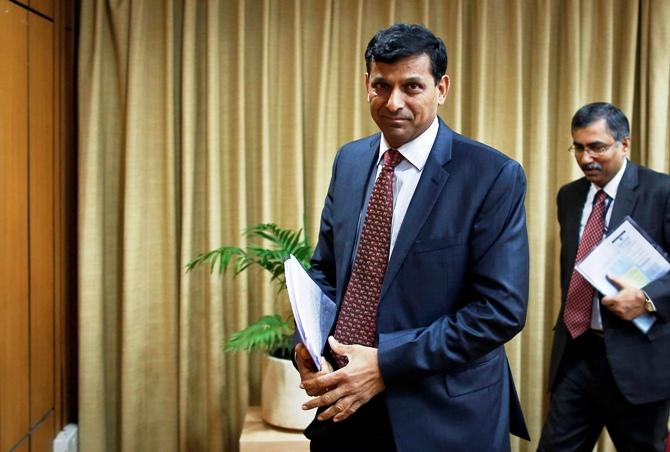
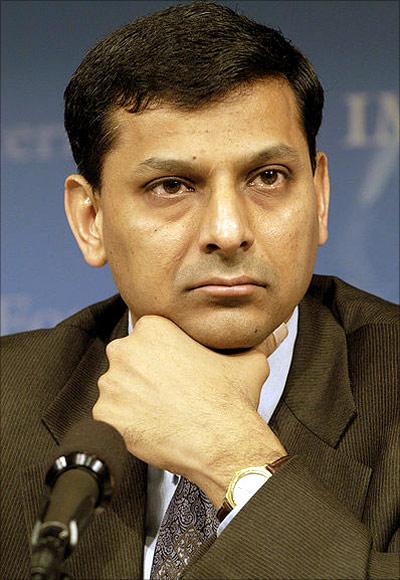
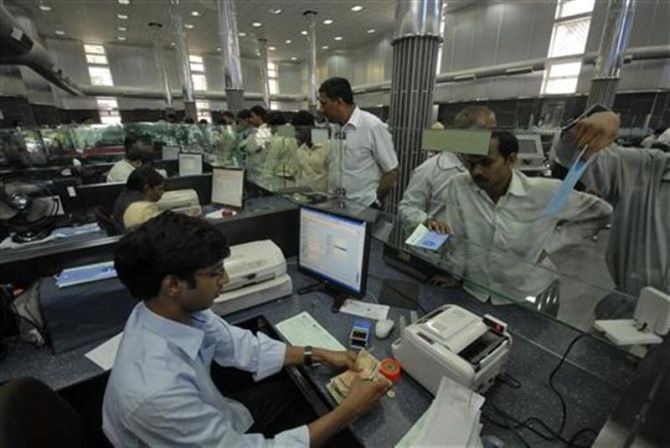
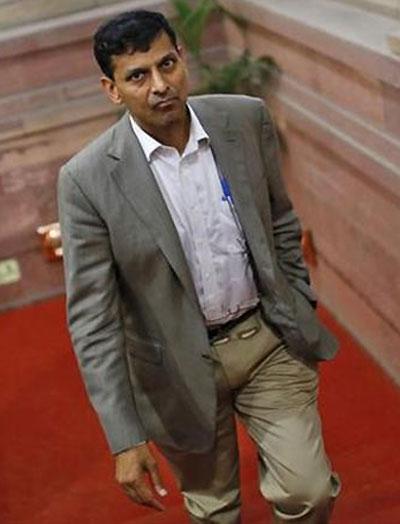
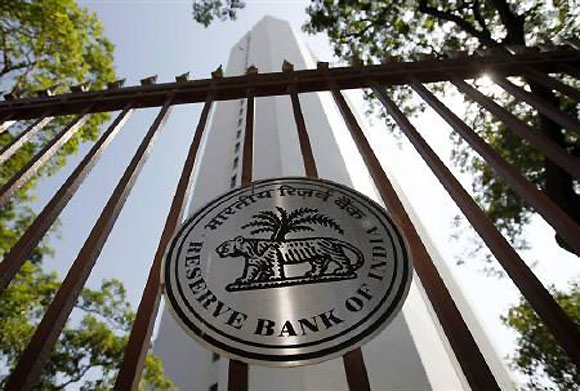
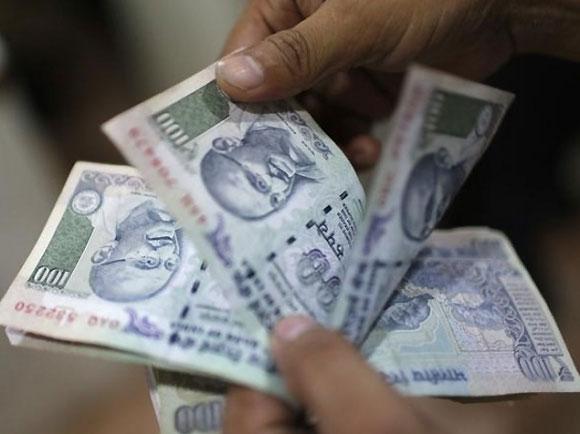
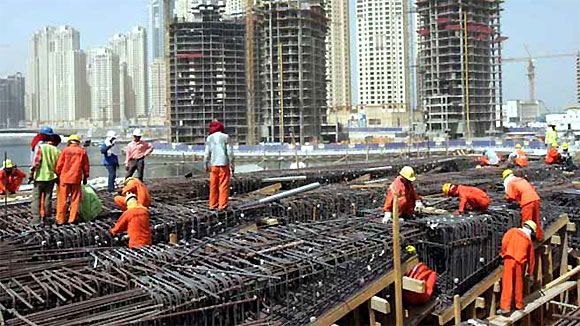
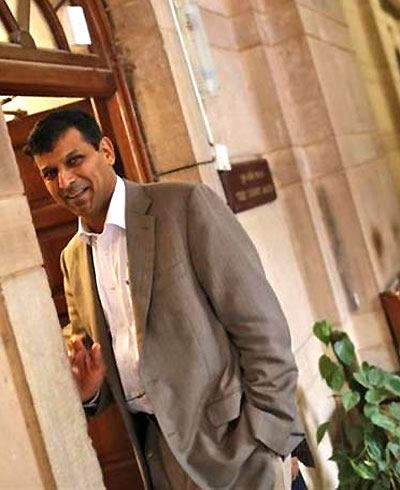


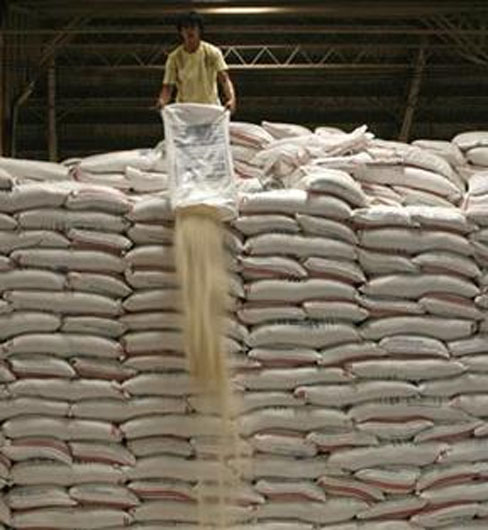


article